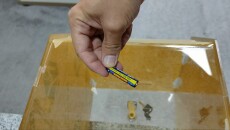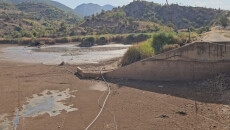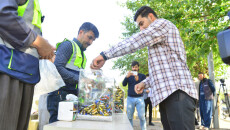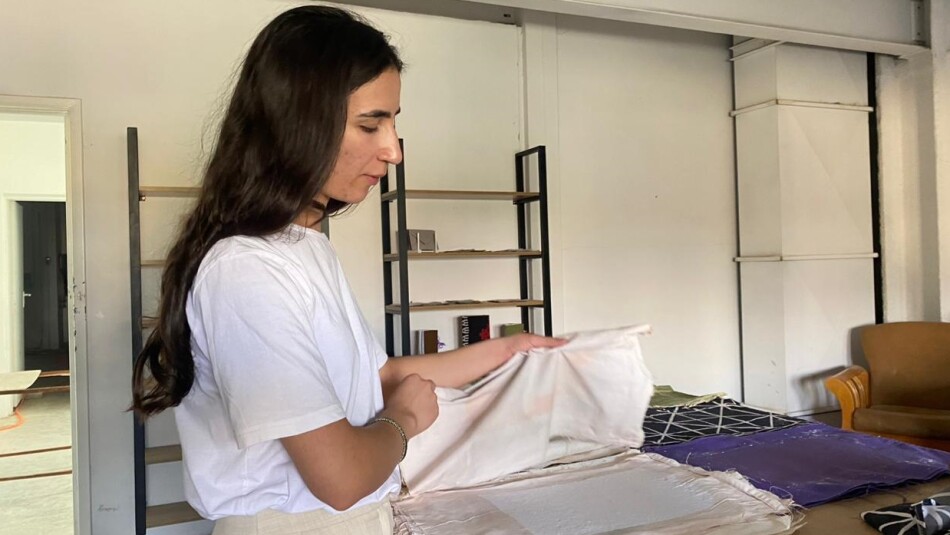
A washing bowl and some pieces of raw cloth with a paper shredder, this was the story of the birth of a project in the northern province of Sulaymaniyah supervised by a girl who recycles no less than 100 kilograms of paper waste per month.
The Parav (Notebok) Project is a paper recycling project with the aim of protecting the environment and reducing the effects of the paper industry, as producing one ton of paper requires cutting down 24 trees in addition to consuming a large amount of energy and water, according to the project owner, Basoz Mohammed.
The paper industry is directly related to environmental pollution. A report by the World Wildlife Fund (WWF) indicates that more than 80% of the world's forests are currently facing extinction due to human activities, including the paper industry, which is the main driver of the extinction process.
WWF is a non-governmental organization concerned with protecting wildlife and reducing activities and events that negatively affect the environment.
College inspired the intiative
Mohammed says that when she was a student at the College of Fine Arts at the University of Sulaymaniyah, she felt upset by the sight of paper waste that filled the waste baskets.
“Our college activities required a lot of paper, so I decided with a friend of mine named Sahand to think of a way to address this problem,” Basouz adds. “At first, we thought about making use of usable paper and reusing it, but we felt that this was not enough.” They found out that recycling paper was the best solution to the problem.
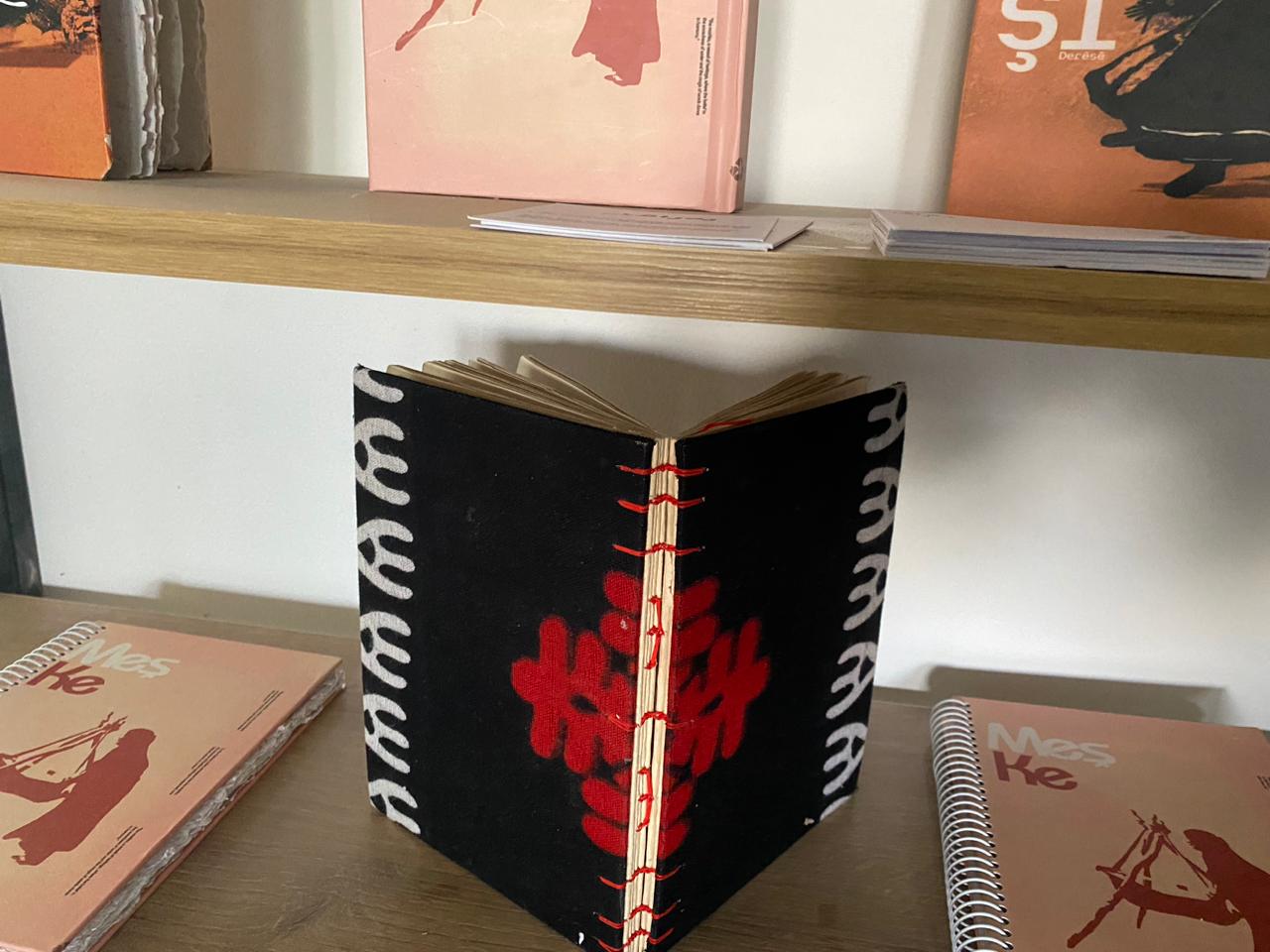
The two continued their consultations until the Parav Recycle project was born in 2021. Mohammed says that the project is the first paper recycling center in the Kurdistan Region of Iraq KRI.
The project works to reduce paper waste by collecting it from government departments and institutions, companies and some other places and then recycling it, in addition to organizing seminars and awareness campaigns to encourage citizens to preserve the environment.
Mohammed is from the town of Qaladzy district but lives in the city of Sulaymaniyah. Her project is environmentally friendly, as most of the recycling process steps are manual, except for shredding the paper using a small device that consumes a small amount of electricity. After shredding the paper, the shredded paper is mixed with water in a large bowl to turn into a paste that is then placed inside a mold that determines the size of the paper that is reproduced. The mold is then placed on a piece of raw cloth to absorb the water and after drying, the paper rolls are formed.
The entire process steps are investigated inside a small room, and dyes can be used to change the color of the paper.
The paper industry is the fifth largest consumer of energy resources in the world and is responsible for emitting 5% of carbon dioxide.
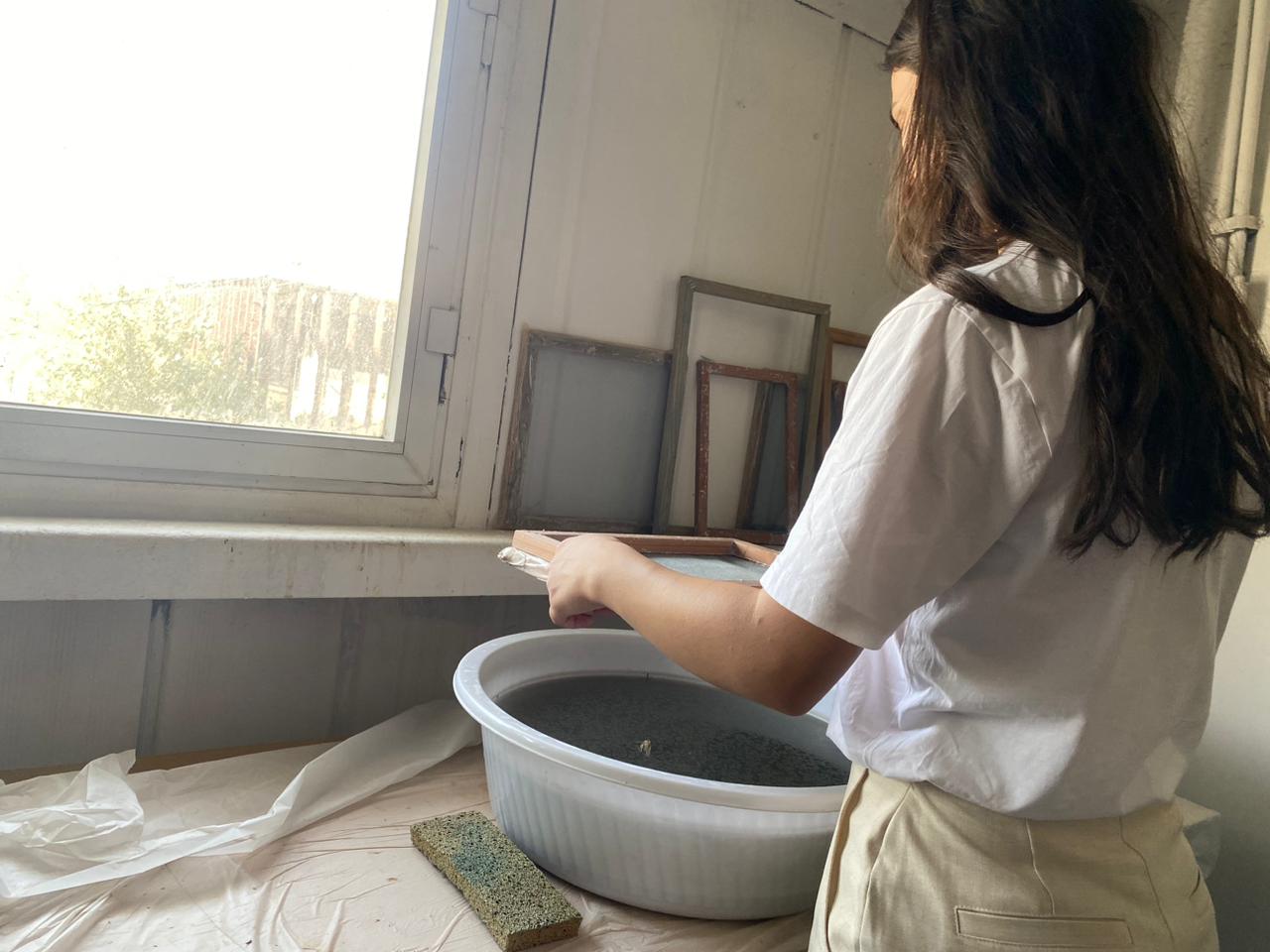
Take your paper waste to Parav, get discount:
Parav Recycle mostly collects paper waste itself, but sometimes it comes to them from citizens.
If companies, departments, and institutions bring paper waste to Parav, they will get discounts on Parav Recycle products ranging from 15 to 20%.
The Parav project recently launched a new product in the form of papers containing seeds. "Inside the paper are the seeds of some types of flowers to contribute to increasing green areas in the event that the paper is thrown away," Basoz explained.
In general, Parav Recycle products consist of notebooks, Canson paper which is suitable for drawing with water and oil paints as well.
The Parav project currently recycles 100 kilograms of paper waste.
The project also raises environmental awareness among citizens and teaches them how to recycle different types of waste through seminars and courses.
"We want to have a unified stance against climate change that is affecting the entire world," Mohammed says.
One of the seminars was organized for children at the Art Yoga House on recycling paper waste. Lona Kurdin, one of the children enrolled in the Yoga House, said, "I did not know before that paper waste could be recycled... I decided from now on not to throw away paper and bring it to the Parav Recycle Project."
The Art Yoga House is an educational project for children, a combination of sports and interest in afforestation, the goal is to strengthen the physical skills and psychological habits of the children and organize various environmental activities.
Sulaymaniyah produces more than a thousand tons of waste daily, of which paper constitutes an unspecified percentage. This is part of the waste management and treatment crisis in the KI, where large quantities of it are burned and buried.
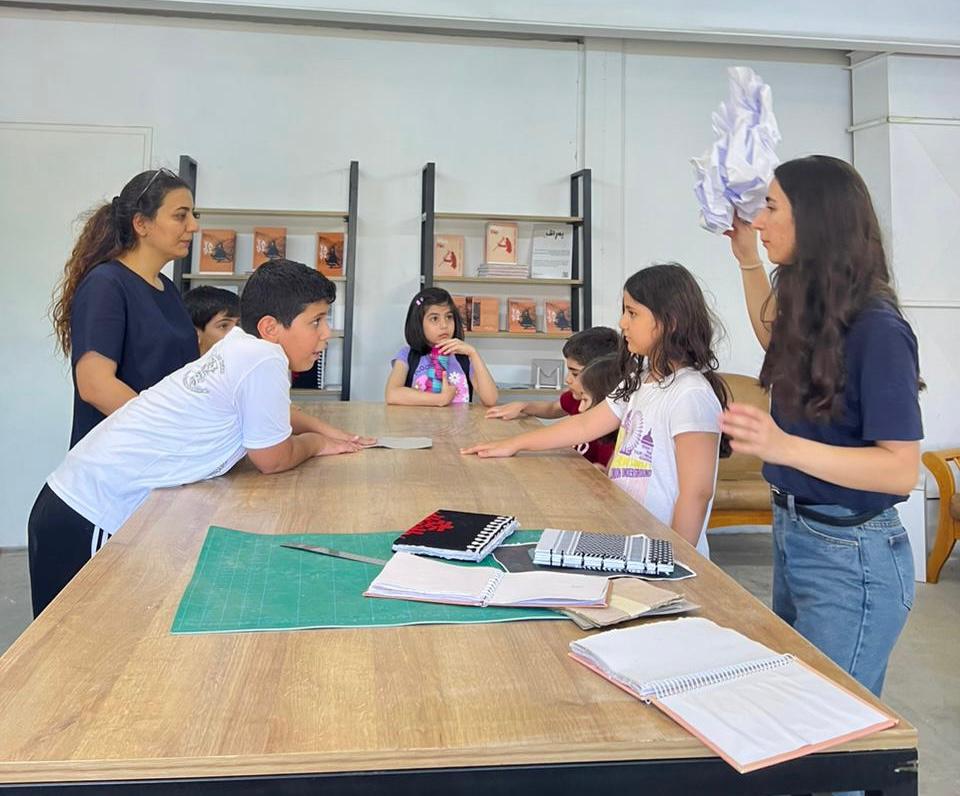
According to (IQAir), a Swiss company working in the field of air quality technology, Iraq's air is among the "most polluted" in the world.
Mohammed is a visual artist who exposes people to some environmental problems through art, such as sculpture, for example, the impact of air pollution on water sources and animals.
Her work also includes preserving Kurdish heritage, and she designs book covers using "Hawri", female head scarf and Jamadana, male head scarf, fabric.
Khaled Sulaiman, environmental researcher, explained that paper waste does not cause the same damage to the environment as plastic waste. "Paper is made from trees and decomposes in the soil," but he pointed out that "the damage paper causes to the environment lies in the stages of its production, because the paper industry requires cutting down natural forest trees, despite the existence of artificial forests specifically for the paper industry."
"Paper production also requires a large amount of energy, natural resources and human resources, and results in the emission of some gases such as carbon dioxide, which in general affects the stages of paper production on the ecosystem and climate change," he added.
Gashaw Fadhel, a trainer teacher for in a number of Sulaymaniyah schools, says that a large percentage of notebooks and school books are thrown away daily. "They say that paper is not harmful to the environment, forgetting the damage caused by paper production."
Parav Initiative is Useful, but It's Just the Beginning of the Journey
Recycling 100 kilograms of paper waste per month is a new and useful initiative, but some see it as not the solution to the piles of paper waste that is thrown away daily such as school books, exam papers, department and company books and the huge amounts of cardboard and paperboard left behind by the markets.
The Parav project is unable to receive and cut cardboard because it is more rigid, and it does not have the ability to make large notebooks like those used by students in their schools.
"To reduce the use of paper in the world, we rely on electronic systems, even school books and curricula have become available electronically, but recycling paper waste is also an important and useful solution to reduce the damage that affects the ecosystem and forests due to the paper production process," Sulaiman says.
